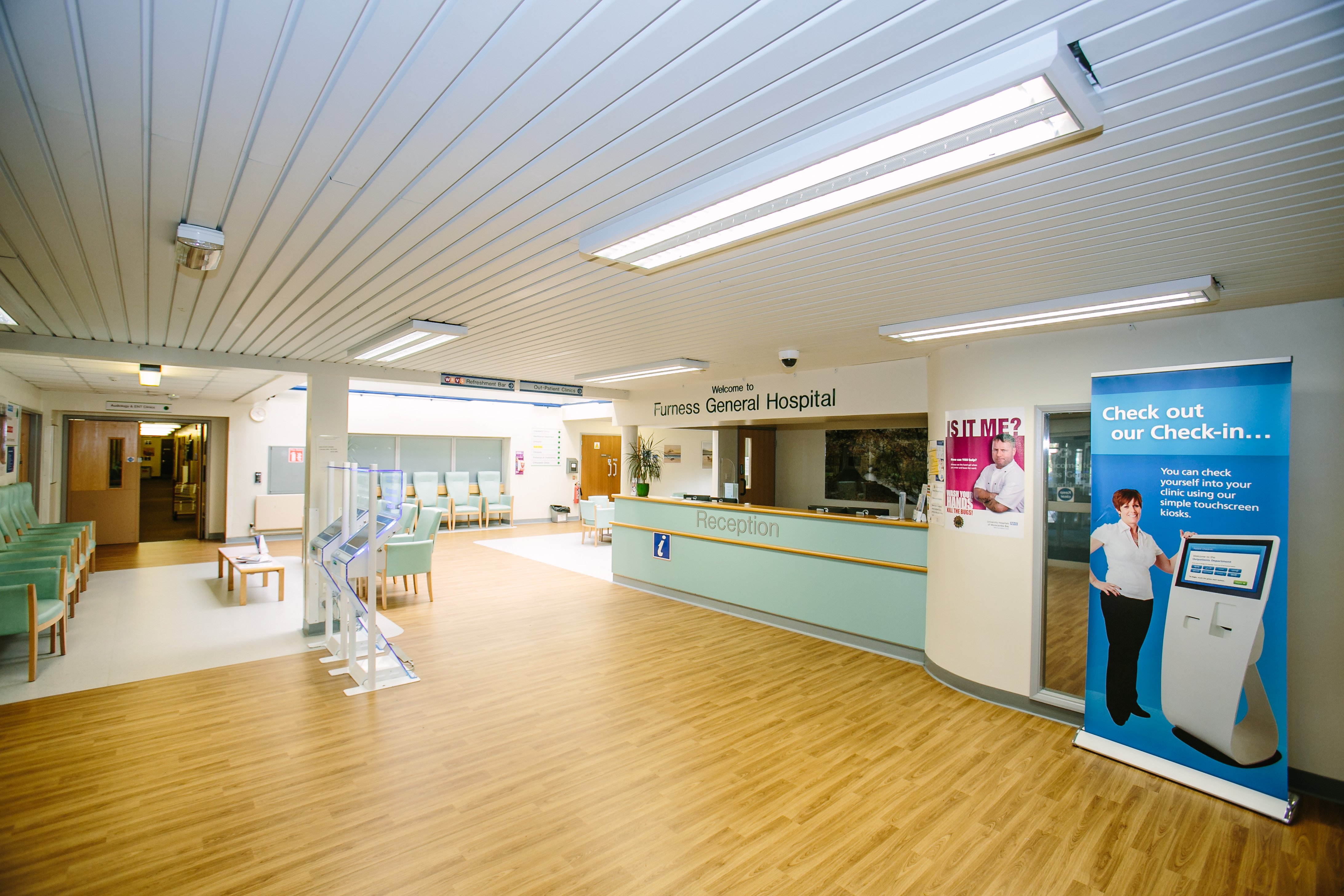Conducted at University Hospitals of Morecambe Bay NHS Foundation Trust's Furness General Hospital site in Cumbria, the ground-breaking operation took place without general anaesthetic. Doctors didn't use the drug because of a series of complication illnesses affecting the woman's breathing and oxygen intake.
Consultant anaesthetist Mahesh Kumar was able to use nerve-blocking injections during the two-and-a-half hour procedure. It could now be rolled out to other patients who need operations but can't be given the medication, experts say.
Afterwards the patient, a pensioner from Barrow, who is not being named, said: 'I never felt a thing. I felt relaxed in surgery. 'Before it was done I was worried but I knew if I didn't have it done it would kill me. I'm so glad now I did go ahead with it.'
She was discharged just four days later, and has since made a full recovery. She needed less morphine for pain relief than patients who have the same surgery with a general anaesthetic. Mr Kumar said: 'I knew this patient couldn't have a general anaesthetic because of her serious respiratory illness. 'But she was otherwise facing a situation where her tumour could push through the skin which would be difficult to look after in the community. 'It also would have reduced her lifespan quite significantly. 'I'd researched two techniques and knew they could be combined to allow this operation to go ahead while the patient was awake.'
Mr Kumar met the pensioner, who had been diagnosed with stage three breast cancer, twice before she agreed to go ahead with the first-of-its-kind procedure. It involved blocking specific nerves to ensure the area set to be operated on by the surgeon, Jorien Bonnema, would be completely numb to give the patient a pain free experience.
The patient went on to use less morphine than a patient who had undergone the procedure under a general anaesthetic and, left hospital the after four days.
News of the successful approach has already spread among specialists with the University Hospitals of Morecambe Bay NHS Foundation Trust. It has identified a further two patients who need surgery but are considered high risk for a general anesthetic. Mr Kumar hopes to complete five procedures before publishing an academic paper on his work in a mainstream medical journal in the hope it can be rolled out further across the NHS in the future. He added: 'I'm delighted for the patient. 'The implications for this are that people who are not suitable for a general anaesthetic may still be able to go ahead with the surgery they need. 'It could benefit a lot of people in the future, as well as reducing the amount of time they need to spend in hospital after their surgery.'

